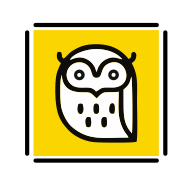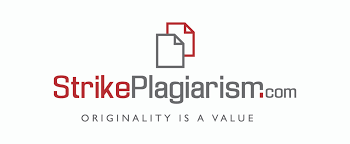Religious Identity in the Use of Social Media Within Pontianak Muslim Community
 Abstract views: 698
,
Abstract views: 698
,
 PDF downloads: 613
PDF downloads: 613
Abstract
Downloads
References
Abdullah, Irwan. “DI BAWAH BAYANG-BAYANG MEDIA: Kodifikasi, Divergensi, Dan Kooptasi Agama Di Era Internet.” Sabda: Jurnal Kajian Kebudayaan 12, no. 2 (December 2017): 116–21. https://doi.org/10.14710/sabda.12.2.116-121.
Ardhianto, Imam. “Kontra Publik Keagamaan Dalam Media Baru: Islam, Kebudayaan Populer, Dan Media Sosial Pada Gerakan #IndonesiaTanpaJIL.” Antropologi Indonesia, no. 2 (2016): 83–102.
Atkinson, J. “Qualitative Methods Book Title : Journey into Social Activism Book Subtitle : Qualitative Approaches This Chapter Explores :” Journey into Social Activism, 2017, 27–64.
Basit, Abdul. “Dakwah Cerdas Di Era Modern.” Jurnal Komunikasi Islam 3, no. 1 (June 2013): 76–94. https://doi.org/10.15642/ jki.2013.3.1.%p.
Basori. “Antara Budaya Dan Agama; Menegaskan Identitas Islam Nusantara.” Madania 7, no. 1 (2017): 1–31.
Bennett, Liz. “Social Media, Academics’ Identity Work and the Good Teacher.” International Journal for Academic Development 22, no. 3 (July 2017): 245–56. https://doi.org/10.1080/1360144X. 2017.1305961.
Bertram, Luke. “Terrorism, the Internet and the Social Media Advantage: Exploring How Terrorist Organizations Exploit Aspects of the Internet, Social Media and How These Same Platforms Could Be Used to Counter-Violent Extremism.” Journal for Deradicalization, no. 7 (2016): 225–52.
Fitriani, Yuni. “Analisis Pemanfaatan Berbagai Media Sosial Sebagai Sarana Penyebaran Informasi Bagi Masyarakat.” Paradigma - Jurnal Komputer Dan Informatika 19, no. 2 (October 2017): 148–52. https://doi.org/10.31294/p.v19i2.2120.
Hasfi, Nurul, Sunyoto Usman, and Hedi Pudjo Santosa. “Representasi Kepemimpinan Calon Presiden Di Twitter.” ASPIKOM 3, no. 2 (May 2017): 270–84.
Holik, Idham. “Teknologi Baru Media Dan Demokratisasi Di Indonesia.” Jurnal Makna 1, no. 2 (2011): 41–57. https://doi.org/ 10.33558/makna.v1i2.1060.
Isnin, Nadrawina. “Social Media, Religion, Gender and Politics in Malaysia: A Case of the Social Media Usage by Sarawak Muslim Female Candidates in Batang Sadong and Batang Lupar in the 2018 Malaysian General Election.” Al-Albab; Vol 7, No 2 (2018): 161-172 DO - 10.24260/Alalbab.V7i2.1114 , December 1, 2018.
http://jurnaliainpontianak.or.id/index.php/alalbab/article/view/1114.
Khamdan, Muh, and Wiharyani. “Mobilisasi Politik Identitas Dan Kontestasi Gerakan Fundamentalisme.” Al-Tahrir 18, no. 1 (2018): 193–218.
Mujahidin, Anwar. “Umat Beragama Sebagai Masyarakat Beradab: Identitas Agama VS Kebangsaan.” Jurnal Kalam 9, no. 1 (2015): 17–30.
Pakpahan, Roida. “Analisis Fenomena Hoax Di Media Sosial Dan Cara Menanggulangi Hoax.” In Konferensi Nasional Ilmu Sosial Dan Teknologi, 479–84, 2017.
Putri, Sukma Ari Ragil. “Wacana Islam Populer Dan Kelahiran Ustaz Medsos Di Ruang Publik Era Digital.” Jurnal Komunikasi Dan Kajian Media 2, no. 1 (2018): 87–114.
Rahadi, Dedi Rianto. “Perilaku Pengguna Dan Informasi Hoax Di Media Sosial.” Jurnal Manajemen Dan Kewirausahaan 5, no. 1 (June 2017): 58–70.
Rahman, M.Syaiful. “Islam Dan Pluralisme.” Fikrah 2, no. 1 (2014): 401–18.
Ro’uf, Abdul Mukti. “Mengurai Radikalisme Agama Di Indonesia Pasca Orde Baru.” Ulumuna 11, no. 1 (November 2017): 157–76. https://doi.org/10.20414/ujis.v11i1.425.
Setiansah, Mite. “Smartphonisasi Agama: Transformasi Perilaku Beragama Perempuan Urban Di Era Digital.” Komunikasi 10, no. 1 (2015): 1–10.
Sholikhin, Ahmad. “Gerakan Politik Islam Di Indonesia Pasca Aksi Bela Islam Jilid I, II Dan III.” MADANI 10, no. 1 (2018): 12–33.
Simangunsong, Benedictus A. “Interaksi Antarmanusia Melalui Media Sosial Facebook Mengenai Topik Keagamaan.” ASPIKOM 3, no. 1 (2016): 65–76.
Situmorang, James R. “Pemanfaatan Internet Sebagai New Media Dalam Bidang Politik, Bisnis, Pendidikan Dan Sosial Budaya.” Administrasi Bisnis 8, no. 1 (2012): 73–87.
Stenius, Kerstin, Klaus M‰kel‰, Michal MiovskyÏ, and Roman GabrhelÌk. ìHow to Write Publishable Qualitative Research.” Publishing Addiction Science: A Guide for the Perplexed, 2017, 155–72. https://doi.org/10.5334/bbd.h.
Susilo, Budi. “Pemasaran Digital: Segmentasi Demografi Pengguna Media Sosial Di Kota Pontianak.” Jurnal Eksplora Informatika 8, no. 1 (2018): 69–79. https://doi.org/10.30864/eksplora.v8i1.163.
Syahputra, Iswandi. “Demokrasi Virtual Dan Perang Siber Di Media Sosial: Perspektif Netizen Indonesia.” ASPIKOM 3, no. 3 (2017): 457–75.
Thomas, Lisa, Pam Briggs, Andrew Hart, and Finola Kerrigan. “Understanding Social Media and Identity Work in Young People Transitioning to University.” Computers in Human Behavior 76 (2017): 541–53. https://doi.org/https://doi.org/10.1016/j.chb.2017. 08.021.
Umar, Ahmad Rizky Mardhatilah. “Melacak Akar Radikalisme Islam Di Indonesia.” Jurnal Ilmu Sosial Dan Ilmu Politik 4, no. 2 (2010): 169–86. https://doi.org/10.22146/jsp.10935.
Wahyudi, Hijrah. “Analisis Faktor-Faktor Yang Dipertimbangkan Netizen Dalam Melakukan Transaksi E-Commerce Di Kota Pontianak.” Jurnal Eksos 10, no. 1 (2006): 32–44.
Watie, Errika. D. S. “Komunikasi Dan Media Sosial.” The Messenger 3, no. 1 (2011): 69–75.
Zulham, Rizky. “Angkat Budaya Dan Marwah, Persatuan Orang Melayu Kalbar Akan Gelar Deklarasi.” March 3, 2017.
The journal operates an Open Access policy under a Creative Commons Non-Commercial Share-Alike license. Authors who publish with this journal agree to the following terms:
- Authors retain copyright and grant the journal right of first publication with the work simultaneously licensed under a Creative Commons Attribution License that allows others to share the work with an acknowledgement of the work's authorship and initial publication in this journal.
- Authors are able to enter into separate, additional contractual arrangements for the non-exclusive distribution of the journal's published version of the work (e.g., post it to an institutional repository or publish it in a book), with an acknowledgement of its initial publication in this journal.
- Authors are permitted and encouraged to post their work online (e.g., in institutional repositories or on their website) prior to and during the submission process, as it can lead to productive exchanges, as well as earlier and greater citation of published work.



















